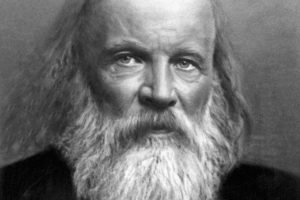This Day in History is DUE’s daily dose of trivia for all the history buffs out there. So sit back and take a ride of all the fascinating things that happened today on 2 February!
People are trapped in history, and history is trapped in people, and hence, every day has been a significant one in the foibles of history. Now, let’s take a tour of “This Day in History – 2 February”.
1349 – Black Death records 200 casualties per day in London

The Black Death was one of the most fatal pandemics recorded in history. About two-thirds of the infected people died within three to four days after developing symptoms. By 2 February 1349, at least 200 casualties per day were being buried in London.
1835 – Beginning of Macaulayism in India

The Council of India presented the English Education Act, which encouraged the promotion of English literature and language. Thomas Babington Macaulay served a large contribution in making English a medium of instruction in higher studies. He is believed to have considered education in native languages like Sanskrit inferior. The term Macaulayism, thereby, refers to the policy of introducing an English Education system to British colonies.
1907 – Death anniversary of Dmitri Mendeleev

Dmitri Mendeleev, a Russian chemist, is known for his valuable contribution to the periodic table. He was responsible for devising the periodic classification of chemical elements.
1915 – Birth of Kushwant Singh

Khushwant Singh, a celebrated Indian author, was born in Hadali, in modern-day Pakistan. He was a recipient of the Padma Bhushan award, the third-highest civilian award in India, but returned it in protest of Operation Blue Star. Some of his best works include ‘Portrait of a Lady’, ‘Train to Pakistan’ and ‘I Shall never Hear a Nightingale’.
1933 – Hitler dissolves Reichstag

On this day, Adolf Hitler dissolved the German Parliament, Reichstag. He had also become the chancellor two days earlier. The following days saw Reichstag being set on fire by a Dutch labourer with communist sympathies. However, many believe it was contrived by the Nazi Government itself. Following this, the Enabling Act was passed, which allowed Hitler to rule by decree.
1990 – The ban on African National Congress is lifted

F.W. de Klerk, the South African President, lifted the 30-year ban on the African National Congress. It ended apartheid and resulted in Nelson Mandela’s release, who went on to become the first black President of the country.
